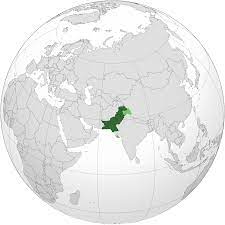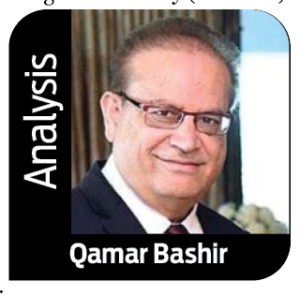
 Aitzaz Ehsan, an esteemed parliamentarian and lawyer, offered a thought-provoking perspective when he remarked that “Pakistan lives on another planet.” His statement resonates with a sentiment suggesting that in Pakistan, constitutional adherence and the rule of law often take a back seat, with brute power seemingly overtaking these principles. While some may contest this broad assertion, there’s an undeniable perception that corruption is not merely a problem but a normalized aspect of the system. Elections, to some extent, seem more of a ratification rather than a choice by the people, where the upcoming government appears pre-selected. The parliament often functions as a formality in passing laws, frequently overridden without repercussions. Significant decisions are made and executed without involving the civilian government, raising concerns about transparency and accountability. Moreover, the value of competency and merit appears diminished, and the nation’s priorities seem disconnected from global standards and critical issues.
Aitzaz Ehsan, an esteemed parliamentarian and lawyer, offered a thought-provoking perspective when he remarked that “Pakistan lives on another planet.” His statement resonates with a sentiment suggesting that in Pakistan, constitutional adherence and the rule of law often take a back seat, with brute power seemingly overtaking these principles. While some may contest this broad assertion, there’s an undeniable perception that corruption is not merely a problem but a normalized aspect of the system. Elections, to some extent, seem more of a ratification rather than a choice by the people, where the upcoming government appears pre-selected. The parliament often functions as a formality in passing laws, frequently overridden without repercussions. Significant decisions are made and executed without involving the civilian government, raising concerns about transparency and accountability. Moreover, the value of competency and merit appears diminished, and the nation’s priorities seem disconnected from global standards and critical issues.
While Pakistan grapples with its ongoing challenges and existential issues, the global landscape is sprinting ahead in a fervent pursuit of cutting-edge technologies. Countries worldwide are actively engaged in the creation, management, and utilization of vast troves of big data. They’re leveraging Artificial Intelligence (AI) to revolutionize automation and predictive analytics, while pushing the boundaries of quantum computing to solve previously insurmountable problems. Meanwhile, on the frontier of scientific innovation, high-precision biotechnology and genetic engineering are making significant strides, propelling breakthroughs in medicine, agriculture, and other critical sectors, including pioneering gene editing techniques to combat genetic diseases.
While Pakistan’s research institutions grapple with financial constraints and face challenges even to disburse salaries to their employees, the global research and development community is forging ahead, engineering crops resilient against pests and diseases, thereby bolstering food production in developing nations. Moreover, the relentless pursuit of renewable energy sources and cutting-edge energy storage solutions is steering sustainability efforts, complemented by materials science innovations crafting sturdier and lighter materials. The Internet of Things (IoT) is ushering in smarter cities and industries, while space technologies carve paths into new frontiers of resource exploration. Concurrently, biomedical innovations are refining personalized medicine, while domains like cybersecurity, privacy technologies, advanced manufacturing, and space exploration herald a future replete with transformative possibilities poised to reshape industries, economies, and societies.
In Pakistan, our state institutions and intelligentsia appear engrossed in a counterproductive trajectory. Rather than advancing the nation’s interests, they seem fixated on pre-election manipulation and the relentless pursuit of political vendettas. Their efforts are dedicated not to progress but to fabricating evidence, orchestrating arrests, and subjecting perceived political threats to humiliation and torture. Concurrently, our media channels relentlessly bombard audiences, both domestic and international, with a narrative that paints our leaders, state apparatus, and citizens as inherently corrupt. They portray our business community, industrialists, traders, and even the general populace as complicit in plundering national resources, transferring wealth abroad, and perpetuating poverty at home.
This self-perpetuating cycle has led Pakistan to concerning global rankings: 169th out of 180 countries on the Corruption Perceptions Index, 105th out of 139 countries on the Rule of Law Index, and 5th out of 163 countries on the Global Terrorism Index. On indices of global peace, human development, quality of life, democracy, and press freedom, Pakistan’s rankings are equally disheartening. In education, Pakistan stands at 62nd out of 115 countries on the Education Index. The Pakistani passport, positioned at 109th on the Guide Passport Index, stands as the 4th lowest-ranking passport globally. These indices collectively reflect the pressing need for transformative change in Pakistan’s socio-political landscape.
Our media appears dedicated to amplifying narratives that undermine our global standing by highlighting a plethora of negative aspects. News coverage often centers on violence, terrorism, high-profile cases like the Faizabad Dharna case, instances of citizens disappearing, cybercrimes, pre-election rigging, allegations of horse trading, controversies like the Toshakhana case, and a myriad of social issues. The focus extends to electricity and gas theft, hoarding, smuggling, traffic law violations, illegal financial activities like hawala and hundi, and the presence of illegal aliens. This relentless focus on negative incidents paints a picture where our country seems immersed in a culture of illegality and instability, potentially impacting our reputation on the global stage.
The world’s media was buzzing with two major events in November 2023: the ongoing conflict between Hamas and Israel, and the highly anticipated meeting between US President Joe Biden and Chinese President Xi Jinping on the sidelines of the Asia-Pacific Economic Cooperation (APEC) meeting in San Francisco. The Joe-Xi meeting yielded significant outcomes on several pressing global issues, including climate change, nuclear security, and trade. Both leaders pledged to maintain open dialogue, acknowledging shared global challenges and emphasizing peaceful competition. They signaled a desire to manage their rivalry responsibly and promote a rules-based order. A key decision was the restoration of military communication channels between the US and China, which had been severed following US Senator Nancy Pelosi’s visit to Taiwan in August 2022. This move aimed to reduce the risk of conflict and promote stability in the region.
The global significance of these events, often underplayed in Pakistani media, underscores the need for our leadership to delve deeper. It’s crucial for Pakistan to scrutinize the meeting between two top leaders, decipher their implications, and identify areas impacting our interests. This requires strategic and tactical adjustments, along with a thorough analysis of the statements made, discerning not just the apparent but also the nuanced intentions.
There’s an urgent call for Pakistani leadership across sectors to prioritize the nation’s welfare over personal agendas. It’s essential to transcend divisive approaches and concentrate efforts on uplifting the 95 million people currently trapped in poverty. Learning from China’s remarkable feat in lifting 900 million citizens out of poverty, there’s a pressing need for innovative strategies and a collective commitment toward socio-economic advancement.
Pakistan’s leadership has an invaluable opportunity to leverage its strong ties with China, a global economic powerhouse, and its influential President, to chart a course towards development. Emulating China’s successful economic reforms of 1978 could be a blueprint for Pakistan’s growth, emphasizing market-oriented reforms, nurturing private enterprises, and attracting foreign investments through the creation of special economic zones.
Learning from China’s proactive investment in education and infrastructure, Pakistan can catalyze improvements in literacy rates and enhance its workforce’s skills and economic productivity.
Shifting focus from trivial issues, Pakistan can draw inspiration from China’s export-led growth strategy, understanding and implementing the methodologies that propelled China to become a leading global exporter of manufactured goods.
Moreover, learning from China’s restructuring of its governance model, Pakistan could transition from a static and unresponsive system to a proactive government. By strategically supporting key industries and implementing policies to attract foreign investments while safeguarding domestic businesses, Pakistan can foster a more dynamic and competitive economic environment.
It’s vital for us to move beyond the self-defeating narrative that paints our nation as corrupt and directionless. Instead, we should aspire to emulate the Chinese model of rapid progress, focusing on economic transformation, enhanced living standards, poverty alleviation, and bolstered sectors like education and healthcare.
Recognizing the destructive trajectory we’re on, it’s imperative to comprehend that this path undermines the very fabric of our society. It also serves as a recipe for a continued decline in Pakistan’s international standing, impacting various global ratings and indices used by nations, institutions, traders, and businessmen to gauge meaningful relationships with countries. Let us make a collective commitment to address internal challenges and pursue a trajectory that uplifts the nation and its citizens and prove the statement of Barrister Aitzaz Ahsan wrong. China did it, so can we.
Writer is Former Press Secretary to the President ,Former Press Minister to the Embassy of Pakistan to France and Former MD, SRBC





